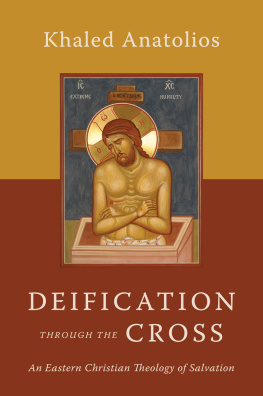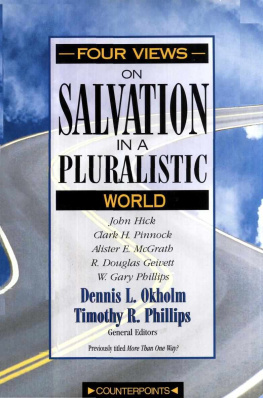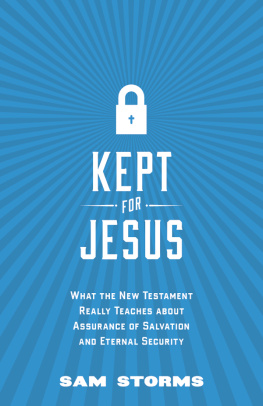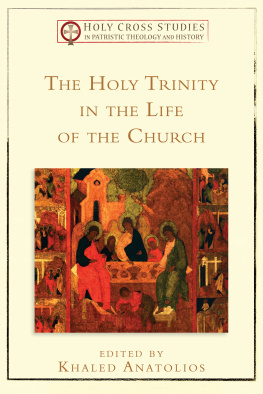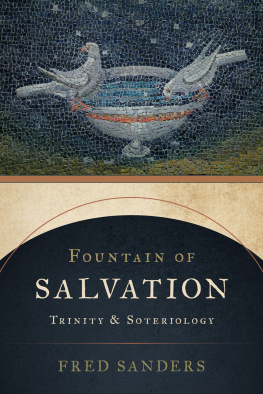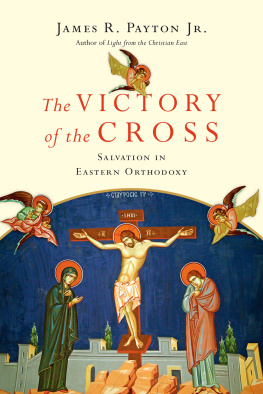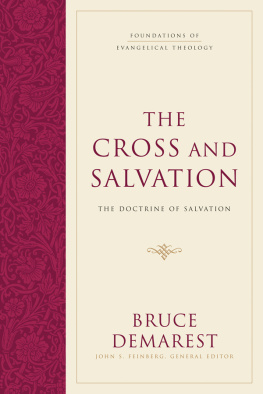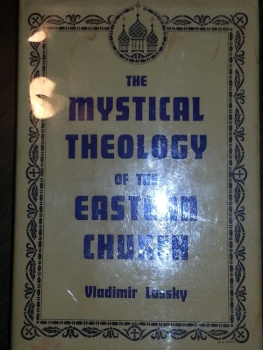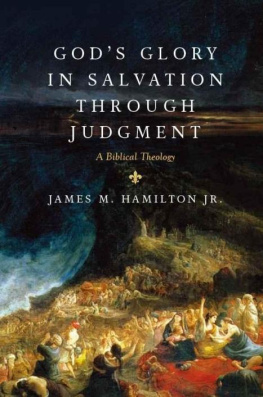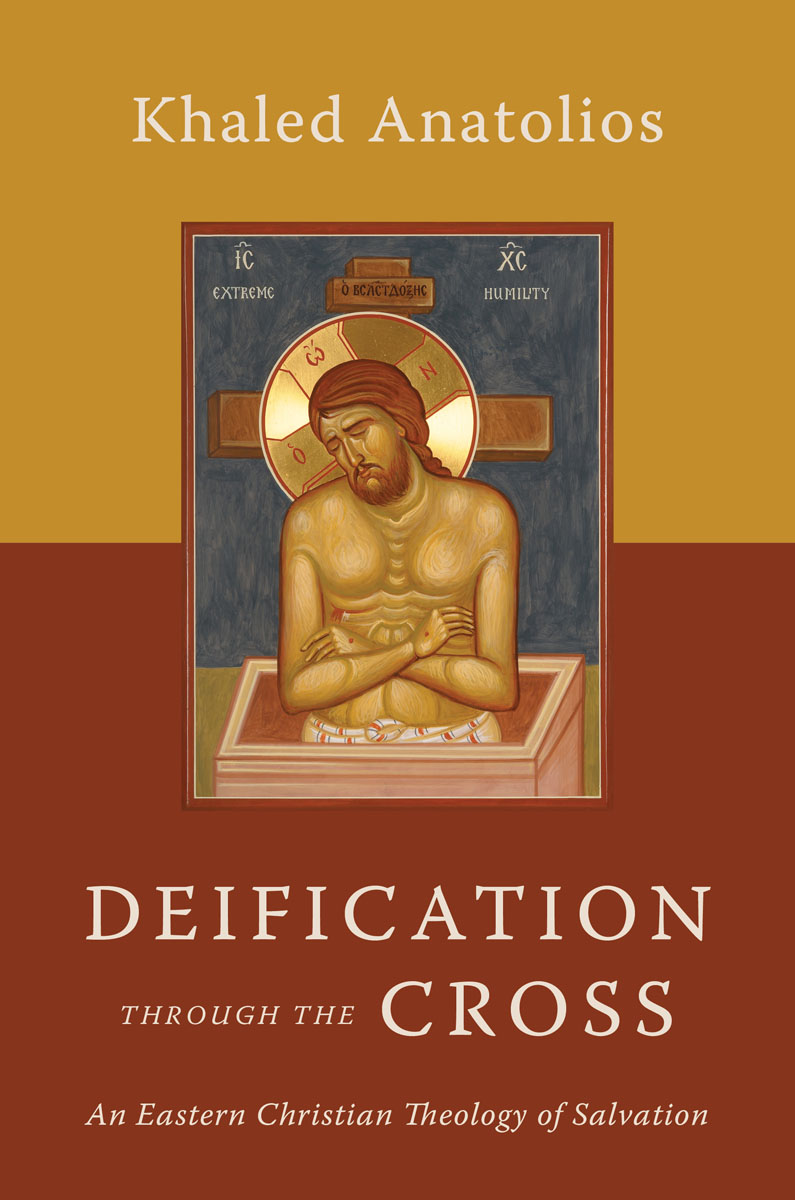

Wm. B. Eerdmans Publishing Co.
4035 Park East Court SE, Grand Rapids, Michigan 49546
www.eerdmans.com
2020 Khaled Anatolios
All rights reserved
Published 2020
Printed in the United States of America
26 25 24 23 22 21 201 2 3 4 5 6 7
ISBN 978-0-8028-7798-7
Library of Congress Cataloging-in-Publication Data
Names: Anatolios, Khaled, 1962 author.
Title: Deification through the cross : an Eastern Christian theology of salvation / Khaled Anatolios.
Description: Grand Rapids, Michigan : William B. Eerdmans Publishing Company, 2020. | Includes bibliographical references and index. | Summary: An argument for a unified and normative Christian view of salvationProvided by publisher.
Identifiers: LCCN 2020020626 | ISBN 9780802877987 (hardcover)
Subjects: LCSH: Deification (Christianity) | SalvationChristianity. | Orthodox Eastern ChurchDoctrines.
Classification: LCC BT767.8 .A526 2020 | DDC 234dc23
LC record available at https://lccn.loc.gov/2020020626
Unless otherwise noted, Scripture quotations are taken from the New Revised Standard Version of the Bible.
Moses said, Show me your glory I pray. (Exod 33:18)
That the rest of our lives may be spent in peace and repentance, let us ask the Lord. (Byzantine Divine Liturgy of St. John Chrysostom)
For Father John Connelly, in celebration of his seventy years of priesthood
Contents
PART I
FOUNDATIONAL SOURCES FOR A SOTERIOLOGY OF DOXOLOGICAL CONTRITION
PART II
A SYSTEMATIC THEOLOGY OF DOXOLOGICAL CONTRITION
Preface
A s I write this preface, in the fourth week of the Easter season of 2020, the whole world is writhing in the stranglehold of the COVID-19 pandemic. The death count climbs daily; entire nations are virtually frozen in place under the confinement of lockdowns and social distancing; recently mighty and frenetic economies are suddenly paralyzed; health experts are warning of a second wave of infections possibly more deadly than the recent onslaught; and protestors in American cities, some wielding firearms, are clamoring for an end to the lockdowns.
For morning prayer, I read from the book of Isaiah, where I find a description of social devastation that is eerily applicable to the current state of things:
Every house is shut up so that no one can enter.
There is an outcry in the streets for lack of wine;
all joy has reached its eventide;
the gladness of the earth is banished.
Desolation is left in the city. (Isa 24:1013)
Reading this passage puts me in mind of another dark passage of terror and lament, the depiction in the book of Joel of a locust plague. In that passage, the writer imagines these ruinous insects as unstoppable warhorses that are invulnerable to all defensive strategies. That imagery, too, seems to lend itself all too easily to the stealthy efficiency of the current invasion of tiny microbes:
Before them peoples are in anguish,
all faces grow pale.
Like warriors they charge,
like soldiers they scale the wall.
Each keeps to its own course,
they do not swerve from their paths.
They do not jostle one another,
each keeps to its own track;
they burst through the weapons
and are not halted.
They leap upon the city,
they run upon the walls;
they climb up into the houses,
they enter through the windows like a thief. (Joel 2:69)
In response to both these depicted devastations, the biblical writers promise a deliverance whose central feature will be a manifestation of divine glory. In Isaiah, the prophet promises that Gods salvific intervention will bring it about that the L ORD of hosts will reign on Mount Zion and in Jerusalem, and before his elders he will manifest his glory (Isa 24:23). Similarly, in Joel, the prophet announces a deliverance from God that will reverse the devastations caused by the locust invasion and will cause the crops to grow once again. Gods salvation, however, is not merely a matter of refurbishing the food supply; the high point of Gods salvific intervention will be the unlimited pouring out of his Spirit on all humanity:
Then afterward
I will pour out my spirit on all flesh
Even on the male and female slaves,
in those days, I will pour out my spirit. (Joel 2:2829)
The prophet resumes the announcement of divine salvation by proclaiming that the Lord will show portents in the heavens and on the earth, blood and fire and columns of smoke (Joel 2:30). The blood and fire and smoke recall the imagery of the manifestation of divine glory in the exodus and in the temple. Gods salvation will bring about renewed and universal access to this glory. As in Isaiah, the manifestation of divine glory is integral to Gods work of salvation.
Alongside their common promise of the manifestation of divine glory, both biblical narrations of episodes of divine salvation also insist that this communication of divine glory must be joined to human repentance. In Isaiah, the prophet is originally warned that his commission will not lead to Israels repentance (Isa 6:10). But the prophetic book as a whole intermingles visions of future salvation with promises and exhortations that this salvation will and must be accompanied by repentance: Zion shall be redeemed by justice, and those in her who repent, by righteousness (Isa 1:27). The predominant biblical term for repentance in the Old Testament is shub, which literally means return, signifying both a return to communion with God through obedience to the divine commandments and, in the context of the exile, a return to the land that was given to Israel in order that she may live out her covenantal communion with her Lord. The book of Isaiah also makes use of this term to exhort Israel to embrace the repentance that is intrinsic to salvation:
Seek the L ORD while he may be found;
call upon him while he is near;
let the wicked forsake their way,
and the unrighteous their thoughts;
let them return (yashob) to the L ORD , that he may have mercy on them,
and to our God, for he will abundantly pardon. (Isa 55:67)
Likewise, in the book of Joel, the promises of the outpouring of Gods Spirit and the manifestation of divine glory are preceded by a call to repentance:
Yet even now, says the L ORD ,
return (shubu) to me with all your heart,
with fasting, with weeping, and with mourning;
rend your hearts and not your clothing.
Return (shubu) to the L ORD , your God,
for he is gracious and merciful,
slow to anger, and abounding in steadfast love. (Joel 2:1213)
This book is not about the COVID-19 pandemic. It was completed, apart from this preface, well before the outbreak of the pandemic. But it seems fitting to address in this preface the relevance and applicability of the conception of salvation presented in this book to our current woeful situation. After all, in biblical terms, despite later and still lingering misconceptions, salvation is never a completely otherworldly notion, a pious dream to be realized only after we wake up from the nightmare of history. In biblical perspective, salvation, while having a finality that transcends present history, never simply abstracts from that history. The God of the Old and New Testaments is a God who works salvation in the midst of the earth (Ps 74:12 KJV), in the midst of the concrete realities of this world. The prophetic descriptions of divine salvation noted above are not timeless meditations on what will happen in an imagined afterworld; they are inspired responses to very concrete situations of exile and famine, situations of political and social and economic breakdown. In the midst of these oppressive circumstances, the biblical writers promise the deliverance of the manifestation of divine glory, which is appropriated through human repentance.
Next page
